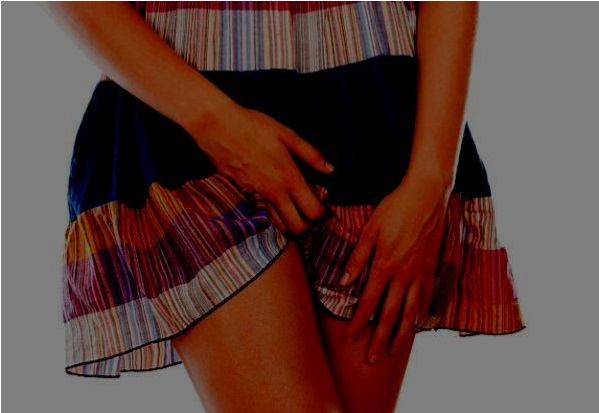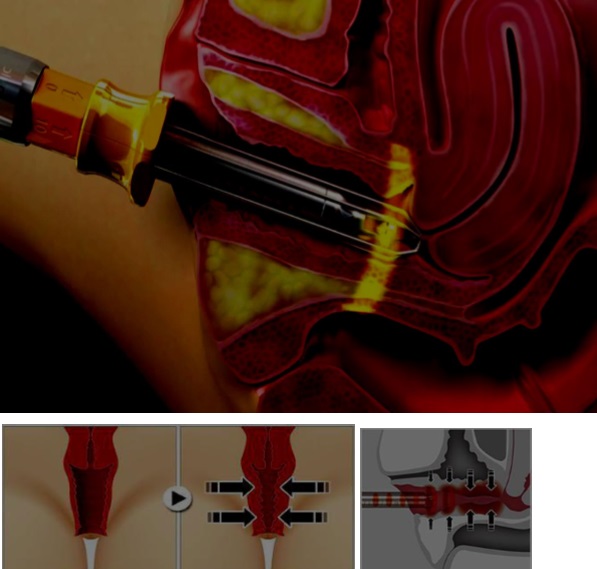Coughing, sneezing, laughing, seem like fairly normal things one would do right? Well, not for everyone. If these symptoms are familiar, then you probably know someone who has SUI (Stress Urinary Incontinence) or you are a sufferer yourself. SUI is the inability to control the vaginal muscles resulting in unpredictable urinary leakage. Can you imagine not being able to bend down and carry your child or having to refuse intimate time with your partner as you fear you may end up in an embarrassing situation? Some of my patients even have problems going from standing to sitting position or lying down.

Statistics show that 1 out of 3 women have experienced it or are living with SUI. The most common cause of SUI is the result of pregnancy – weight of the baby puts stress on the pelvic floor as well as the hormone relaxin produced softens the muscles in the pelvic floor, childbirth – vaginal delivery especially if you had an tear or episiotomy causes the pelvic muscles to weaken and hormonal changes during menopause – lower oestrogen levels cause the muscles around your urethra to weaken. Other causes include being overweight, hysterectomy – as it could damage the pelvic floor, smoking – as is leads to chronic cough that can put pressure on the pelvic floor and some medication – such as antidepressants, sedatives, muscle relaxants and high blood pressure medication.
From my experience, I noticed that SUI greatly affects a woman psychosocially. Sufferers usually try to plan their lives around the problem. For example, many women refrain from doing certain activities such as exercise, shopping and social activities such as travelling or meeting up with friends. If abstaining is not a choice, they often need to take other precautions such as packing a change of clothes or wearing a sanitary pad. With so much isolation and adjustments they have to make, it is only normal that these women experience depression, the feeling of hopelessness, embarrassment and anxiety which leads to a decreased quality of life.

I have noticed that a lot of women rather live with the problem than to seek treatment, firstly, because they do not know that SUI can be treated and secondly, they are afraid of surgery. However, there are non-surgical ways to treat SUI such as lifestyles changes – cutting out cigarettes, losing weight, pelvic floor muscle training – most popularly known as kegels, vaginal cones – medical device specifically designed and shaped to exercise pelvic floor muscles and medication – duloxetine hydrochloride.
If you have given these non-surgical methods a shot and they still don’t work, the doctor may suggest surgery. There are different surgeries prescribed on case to case basis such as Bladder Neck Suspension Sling – the sling supports the urethra and helps keep it closed, Collagen Injections around the urethra – builds thickness around the urethra so it seals tightly, Artificial Urinary Sphincter implantation – includes a cuff, balloon and pump to replace the non-functioning muscles that control urine and Tension Free Vaginal Tape (TVT) – provides support for a sagging urethra and can be done under local anaesthetics.

The good news is with the advancement of technology, another form of non-surgical treatment for SUI is now available in the form of non-invasive laser treatment also known as Vaginal Laser Rejuvenation Treatment. Non-invasive SUI laser treatment results are on par with surgery minus the down time and complications. Vaginal Laser Rejuvenation works by remodelling the body’s own collagen to revive and revitalise the vaginal tissues. Other than treating SUI, Vaginal Laser Rejuvenation Treatment treats vaginal atrophy, tightens the vagina, enhances the appearance of pigmented vulva, improves post-delivery vaginal alterations, reduces dryness and burning sensation, normalizes discharge burning sensation and itching.
So, if you have been suffering in silence, remember to consult with a qualified and experienced Aesthetic Physician. Do not be afraid to ask as many questions to clear your doubts, although most aesthetic treatments are fairly safe and have minimal side effects. If you have any questions for me, please feel free to drop a comment below.









